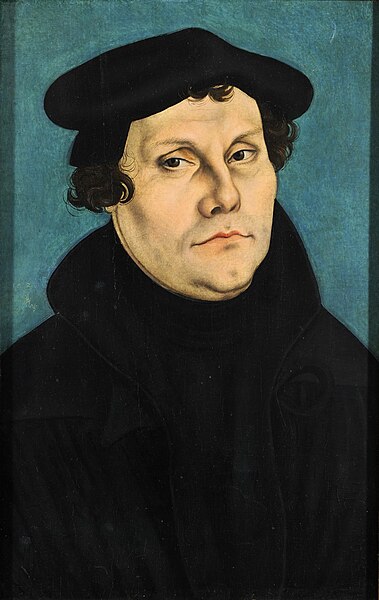Justificatio sola fide, meaning justification by faith alone, is a soteriological doctrine in Christian theology commonly held to distinguish the Lutheran and Reformed traditions of Protestantism, among others, from the Catholic, Eastern Orthodox, Oriental Orthodox, Assyrian and Anabaptist churches. The doctrine asserts that it is on the basis of faith alone that believers are made right of sin ; and not on the basis of what Paul the Apostle calls "works of the law", which sola fide proponents interpret as including not only moral, legal or ceremonial requirements but any good works or "works of charity."
It is often argued that Clement of Rome is a witness to the doctrine of faith alone. However there is much controversy about his views
Jovinian has been argued to have taught similar views of justification as the Protestant reformers.
Jacques Lefèvre d'Étaples taught the doctrine of justification by faith alone before Martin Luther
1861 painting of Luther discovering the Sola fide doctrine at Erfurt
Lutheranism is a major branch of Protestantism, identifying primarily with the theology of Martin Luther, the 16th-century German monk and reformer whose efforts to reform the theology and practices of the Catholic Church launched the Protestant Reformation.
Martin Luther, a 1529 portrait of Martin Luther by Lucas Cranach the Elder
The title page of the Swedish Gustav Vasa Bible, translated by brothers Olaus Petri and Laurentius Petri and Laurentius Andreae
A Hundskirche replica
The University of Jena in Germany, the center of Gnesio-Lutheran activity leading up to the Formula of Concord, and a center of Lutheran orthodoxy







